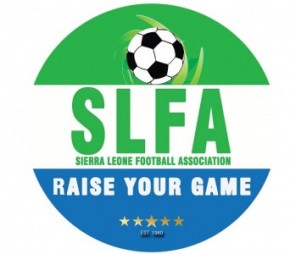By Alusine Fullah
“What young people need most is well functioning labour markets with decent job opportunities for those already participating in the labour market, along with quality education and training opportunities for those yet to enter it,” Martha Newton, ILO Deputy Director-General for Policy.
To be honest, the labour market doesn’t look good for today’s youth. Unemployment rates for those under 25 are over twice the national average and remain far above their pre-recession levels. High youth unemployment isn’t new. Since 1948, youth unemployment rates have been, on average, 2.7 times higher than the prime-age unemployment rate, although this ratio tends to vary with the business cycle.
From the beginning of the 20th century, unemployment has been articulated as an alarming issue in the world. In particular, youth unemployment has gained its concern by wake of the 21st century. There are varying ideas and thoughts about the effects and causes of unemployment in the world. The consequences of unemployment are not short lived; rather they create a sudden disorder in the society, prolonging a long term effect. The impact will be felt rather with a “ripple effect” with very negligible start at one point, eventually loading with an extensive impact to the society, then to the nation and the globe in the long run.
Theoretically, unemployment is entirely a new issue in context of Sierra Leone. Sierra Leone started its socio –economic development after the 1960s and since then like any other developing nation, Sierra Leone started raising concern for the state of joblessness of the its people, particularly the young people in the country.
On the individual level, long term unemployment has resulted in varied disturbances of physical and psychological well-being of an individual. Other issues like systolic blood pressure, consumption of alcohol and increase in crime rates are more among long-term unemployed boys than among others. Therefore youth unemployment is linked with increased health symptoms, deterioration in health behaviour and increase in drug abuse. In order to have a better approach in addressing its core issues and mitigate down incidences, it is very necessary to understand consequences which has stronger impact on the youth who are unemployed for longer or shorter period of time.
Generally, the normal consequences related to youth unemployment are socially disturbing outcomes such as drug and alcohol abuse, and, premature pregnancies in young girls, so on and so forth. Furthermore the affect is dominant amongst the most endangered section of society which includes the school dropout, those with deficient school career and working class minorities. (Petersen & Mortimer, 1994). The circumstances in Sierra Leone is no different than rest of the world, though the occurrence of such incidences seems lower owing to its population of just seven million people, with which it is clear that it is an area of concern.
Investments in care sectors (in health and in education) benefit young people in four key respects: they improve young people’s employment prospects; they make it easier for young women and men with family responsibilities to remain in the labour force; they promote the well-being of young people by expanding education and training opportunities and catering for young people’s health.
But how youths should eschew/ jump the gutter of unemployment in Sierra Leone? To be frank, there are many strategies for ending youth unemployment, but talk is cheap if these strategies are not implementable. It is critical to equip the youth with the tools and support they need to succeed. But what do these look like? Here are five ideas.
Entrepreneurship is a powerful tool in fighting youth unemployment. Entrepreneurship is about creating value in innovative ways or building solutions in ways that haven’t been done before. In line with that, youths should encourage this kind of thinking by giving themselves the space to try new ideas and by providing themselves with the resources to implement these.
Also, the issue of begging and liability (“u borbor day theory”) theory will never unemployment but add more problems to the rate of unemployment in the country. As youths, you have to take full responsivities of your destiny/ actions. Stop begging especially politicians! Don’t serve as a liable asset to people. Above all, stop the blame game theory. For instance, I normally hear our youths say I should have on ABC activity/ programme, but because of my uncle or father… No! Take full responsibility of your actions. Change your mind set, and always think positively. Be resilient in every trial, and have a focus mind.
For the employers, they should Break/ eradicate the no-job-no-experience cycle. Young people have been disproportionately affected by the COVID-19 pandemic. They will continue to struggle to find meaningful employment, and even if they do, they are likely to be impacted by the long-term consequences of lower wages, poorer prospects, and strained mental health. When an employer wants to discard you, he will ask for five or seven years of job experience. As a result, this can serve as a stumping block for the reduction youths unemployment in our country. Remember, no one was born great; so it you (employers) that have the ways to make them (youths) great.












